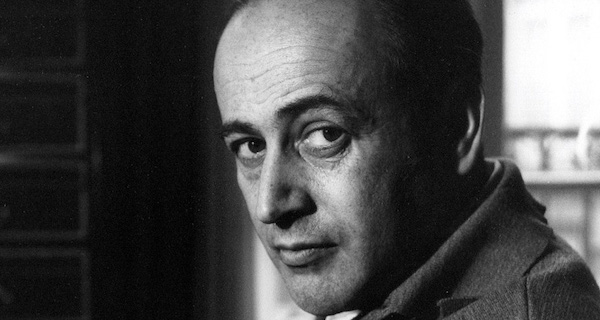
I got an email from a friend. Had I seen the website, he asked, started recently by Richard Spencer, the vocal and increasingly visible figurehead of the alt-right movement? The whole thing is devoted to the normalization of white supremacist ideology.
No, I hadn't.
I read the article my friend had sent, an intellectually and morally bereft assault on the Jews who criticized the White House's statement on International Holocaust Remembrance Day. A statement that failed to mention the very population the Final Solution was designed to exterminate. Spencer argued that Jews invoke the specter of Adolph Hitler and the Holocaust not to identify occurrences of historical violence but to promote their victimization and themselves.
I read the article's comments, violent and hateful, which confirmed it was not just a feeble intellectualization of the politics of atrocity but a new form of Holocaust denial, an excuse to stir up anti-Semitic sentiment among the individuals visiting the website, more and more outspoken in Trump's America, who needed no such excuse.
I thought of Primo Levi's Holocaust memoir, The Drowned and The Saved. In the preface, Levi, a Jewish-Italian survivor, describes a dream that haunted other survivors. "They had returned home," he writes, "and with passion and relief were describing their past sufferings, addressing themselves to a loved one, and were not believed, indeed were not even listened to." It's important to understand, writes Levi, that "both parties, victims and oppressors, had a keen awareness of the enormity and therefore the noncredibility of what took place in the Lagers."
[caption id="attachment_9190" align="aligncenter" width="300"] Primo Levi[/caption]
Primo Levi[/caption]
The alt-right understands, as did the Nazis—and the Trump administration, for that matter—that we rely on our understanding of history for our knowledge of the present. A shift in the language of the past—or the failure to frame it according to documented evidence—can radically alter that understanding, obscuring or obliterating the truth altogether. By warping historical atrocity to the advantage of their white supremacist ideology—in this case, by drawing the focus away from the death of Jews in the Holocaust—the alt-right is trying to shift political reality away from fact and into the terrain of hatred, anger, and fear.
Paul Celan, the Romanian-born Jewish poet and Holocaust survivor, wrote: "Reality is not simply there, it does not simply exist; it must be fought for and won." Celan had a reality inflicted on him in which his identity was criminalized and his life confiscated by the 1935 Nuremberg Laws. Celan survived Hitler's Third Reich just for the privilege of being recognized as human, someone protected by the law. Certain forces in the culture are now working hard to change history and create a reality in which legal protection is attainable only for some. In other words, they're coming not just for the future but for the past.
[caption id="attachment_9189" align="aligncenter" width="268"] Paul Celan[/caption]
Paul Celan[/caption]
Walter Benjamin writes: "To articulate the past historically does not mean to recognize it ‘the way it really was.’" Benjamin wants a history that works against received thought, against political and cultural conformism, and wages "the fight for the oppressed past"—for lost voices and forgotten injustice. I want writing that lives with this dictum in its consciousness. And I wonder if literature can be thought of as articulating the present historically by finding new points of convergence between the past and the now, by complicating our ideas of what came before, and creating new forms to accommodate new ways of thinking.
I want works of literature that experiment with and expand the boundaries of language and perception. I want these works to be various in their methods, materials, and approaches. I want them to disturb and unsettle, to radically reorient our attention, to go in any and every direction; I want them to pulse with time.
And I want the writer to be a historian the way Benjamin meant it. Because, as we've seen recently, history's not simply there. It requires vigilance and perseverance. It has to be fought for and won, every word of it.
Lighthouse instructor Adam Fagin is teaching our Experimental/Hybrid Forms workshop, starting March 20. He has two chapbooks, T's Alphabet (Little Red Leaves Textile Series 2013) and THE SKY IS A HOWLING WILDERNESS BUT IT CAN'T HOWL WITH HEAVEN (Called Back Books 2016), and his poetry has appeared in The Seattle Review, Colorado Review, New American Writing, Boston Review, Fence, Volt, and Web Conjunctions, among others.

